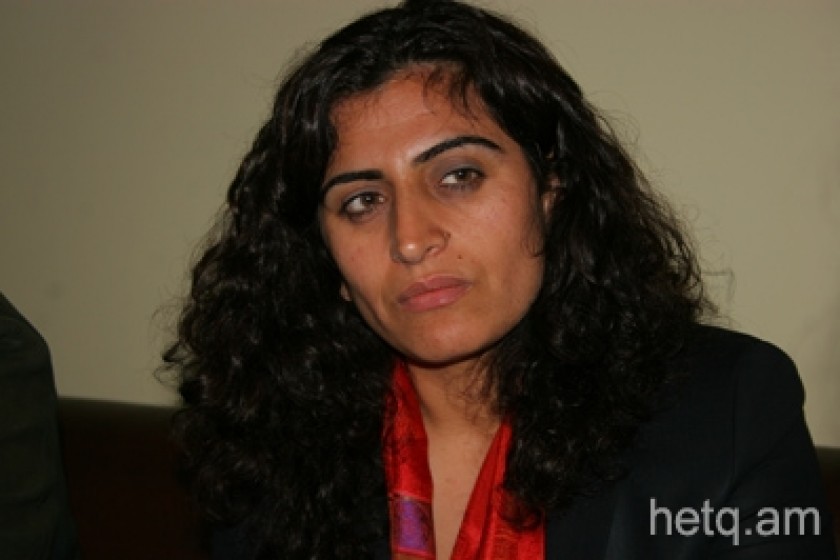
Kurdish MP: “Slapping that policeman was a blow for the oppressed”
Sebahat Tuncel is a Kurd who was elected to the Turkish parliament back in 2007. She is running to hold on to her seat in the election set for June 12 in Turkey.
She once served on the board of the BDP, the pro-Kurdish Peace and Democracy Party, but is now running as an independent.
In 2006, she was sentenced to 15 years imprisonment by a Turkish court for membership in the PKK (Kurdish Workers Party); considered a terrorist organization by Ankara and most of the West.
However, when she was elected to parliament she obtained immunity from prosecution. If she loses the upcoming election she again faces jail time.
Tuncel and 61 other independent candidates are being backed by the opposition alliance called “Work, Democracy and Freedom” which espouses a socialist ideology. It’s comprised of a number of smaller political parties, trade unions and individuals.
She believes that 40 of these 62 independent candidates have a good chance of getting elected.
“After the 1980 military coup, the government placed a 10% vote minimum for parties to get into parliament on a proportional basis. The move was made to restrict Kurdish and other leftist parties,” says Tuncel. “So we decided to run as independents and increase our chances.”
The Kurdish MP also told me that up until 2007 the Turkish government allocated funds to political parties before elections but that the three largest ones (AKP, CHP and MHP) got together and changed the laws. Furthermore, independent candidates must now pay a fee of 7,890 TL to register, up from the previous 490.
Tuncel noted that Ankara has until June 15 to present its set of compromises on the Kurdish issue. Otherwise, the temporary PKK ceasefire will be lifted and hostilities will resume.
Many are calling for the Kurdish language and national identity to be recognized by Turkey’s constitution. Many are going so far to seek a degree of regional autonomy where Kurds comprise the majority of the local population.
Sebahat Tuncel was born in Malatya in 1975. Even though socialist ideology was a common subject of debate in the rural household, Tuncel says it was the actions of her activist aunt that impacted her the most.
“It was the 1990s and the war was in full swing. I started to ask questions, especially about my national identity. One question was why I couldn’t speak Kurdish even though I was a Kurd? These issues brought into the field of politics.”
Tuncel follows the Alevi religious tradition and this has created even more problems. Then, there’s the fact that she’s a woman.
Nevertheless, Tuncel says entering into the Kurdish struggle was the correct choice for her.
“In terms of the feminist struggle, I can say that the Kurdish women as the greatest contributors. She struggles against Kurdish feudalism and against the Turkish state apparatus. Today, there are 3,200 Kurdish women in Turkish jails. More than 10,000 Kurdish women have died in the war and due to torture while incarcerated.”
Sebahat Tuncel made the front pages of the news when she slapped a Turkish policeman.
“That was the first time I ever slapped someone. I found no pleasure in it but it got me a following amongst average folk. The downtrodden felt that the slap was in their name against a representative of the state.”
 Videos
Videos Photos
Photos
Comments (1)
Write a comment